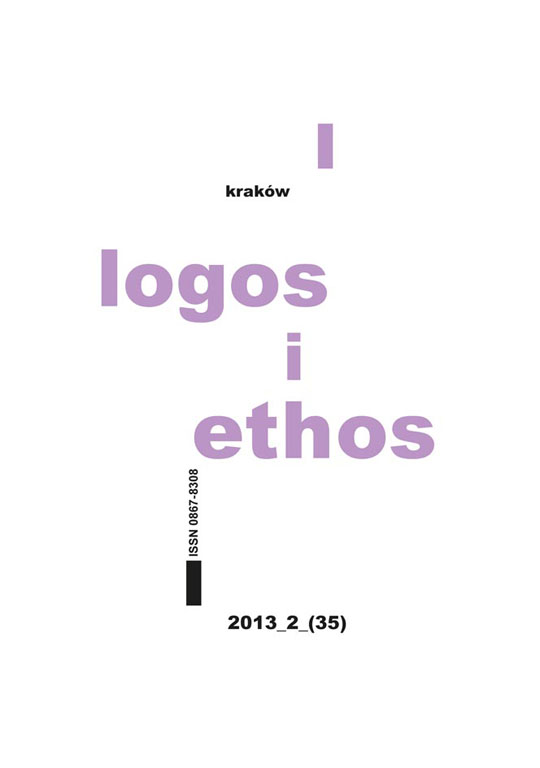Fenomen nawrócenia – próba filozoficznego ujęcia
DOI:
https://doi.org/10.15633/lie.158Słowa kluczowe:
conversion, religious drama, anthropology, existentialism, St Augustine, J. H. Newman, E. Stein, J. Tischner, HegelAbstrakt
This paper attempts to study and to describe the experience of conversion that is an existential change, whose aim is to initiate a relation with God. Although the category of conversion is biblical and theological, it is also an anthropological notion. Hence, research on this phenomenon by means of the phenomenological method may result in the extension of the knowledge of humanity.
The article consists of two fundamental parts. In the first one three examples of conversion, as an empiric basis for further research, are presented: St Augustine of Hippo’s, Cardinal John Henry Newman’s and Edith Stein’s. An investigation of their ways enables us to enter into the horizon of the experience of conversion and to understand its basic intuition. In this approach the conversion is comprehended as a radical turn on the road of searching for the truth. A converting person gains the consciousness of being on the supreme way to the truth.
In the further part of the article, the investigations bring a more universal description of this phenomenon. Conversion is certainly not only the single event, e.g. the turning point. It is rather a process which has its ‘before’ and ‘after’. On the way leading to conversion one may find such phenomena as: the integrated life of the person, an experience of emptiness and dissatisfaction, the courage to break present horizons and a readiness to accept the unexpected. In turn, ‘after’ the conversion one may notice the following phenomena: an experience of one’s own limits, the consciousness of the Absolute and an experience of freedom.
The paper culminates in the discussion about the comprehension of conversion in terms of the process of philosophy or the ontology of becoming. Such concepts as Hegelian dialectic, Aristotle’s theory of act and potency or Kierkegaard’s leap of faith are rejected. The way of converting man has its explanation in the categories of the religious development according to J. H. Newman.
Pobrania
Opublikowane
Numer
Dział
Licencja
Prawa autorskie (c) 2013 Piotr Karpiński

Utwór dostępny jest na licencji Creative Commons Uznanie autorstwa 4.0 Międzynarodowe.
Autorzy publikujący w czasopiśmie udzielają jego wydawcy zgody o następującej treści:
- Autor zachowuje autorskie prawa majątkowe do utworu, a jednocześnie udziela wydawcy czasopisma zgody na jego pierwszą publikację w wersji drukowanej i wersji online na licencji Creative Commons Uznanie autorstwa 4.0 Międzynarodowe oraz zgody na wykonywanie opracowań, w tym przekładów.
- Autor ma możliwość udzielania zgody niewyłącznej na opublikowanie utworu w wersji, która ukazała się w czasopiśmie (np. zamieszczenia go w repozytorium instytucjonalnym lub opublikowania w książce), wraz z informacją o jego pierwszej publikacji w czasopiśmie.
- Autor może umieścić swój utwór online (np. w repozytorium instytucjonalnym lub na swojej stronie internetowej) jeszcze przed zgłoszeniem utworu do czasopisma.

